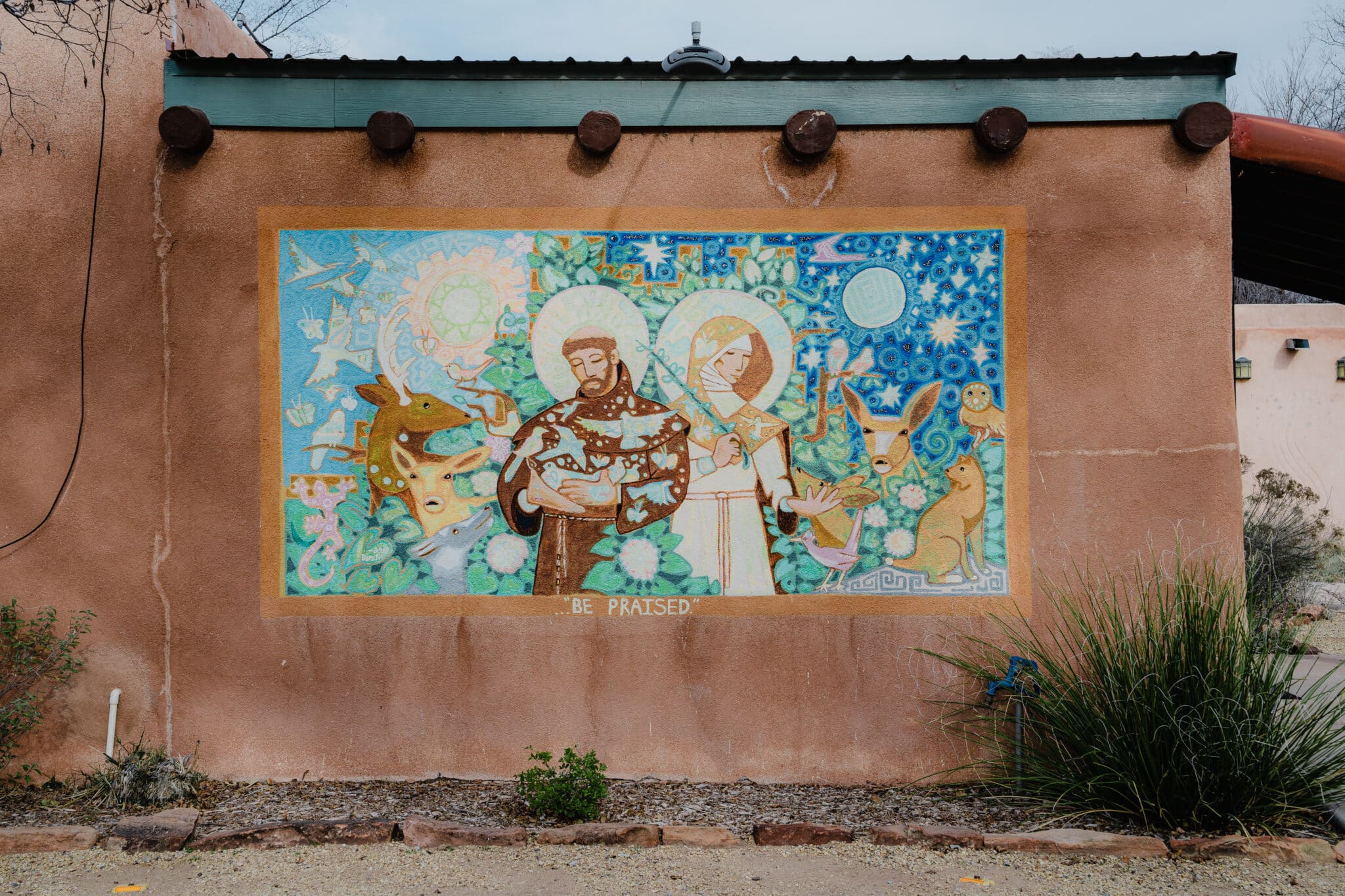We are living in confusing times, especially with abortion, political lies, gun violence, attacks against the Church, and so on. I remember that we should consider the common good when voting. What is the Catholic Church’s teaching on the common good?
According to section 1906 of the Catechism of the Catholic Church, the common good means “the sum total of social conditions which allow people, either as groups or as individuals, to reach their fulfillment more fully and more easily.”
The Catechism then lists three essential elements: 1) respect for the fundamental and inalienable rights of the human person (1907), 2) social well-being and development of the group itself (1908), and 3) the stability and security of a just order (1909).
The people condemned in the Last Judgment scene in Matthew 25:44–46 failed to support the common good because they neglected the hungry, the thirsty, strangers, those needing clothes, or people who were sick. In effect, those condemned accepted those human conditions as simply “normal.”
For some people, unfortunately, there are only two realities: what already favors their personal advantage or what would cause that if other people understood the situation correctly. For them, the common good makes no more sense than “square circles.” You can put the words together, but their minds cannot form that concept.
Only radical conversion can overcome that obstacle. When we pray in the Act of Contrition, “for what I have done and what I have failed to do,” the second part of that phrase refers to sins of omission toward the human family in general as well as toward specific persons.
Papal encyclicals and other documents from Leo XIII (1891) to Pope Francis’ “The Joy of the Gospel,” “Laudato Si’,” and “Fratelli Tutti” have explained Catholic social teaching, which some Catholics and others have simply rejected as Communist or socialist teachings. The common good was at the heart of all the ideals and the four people praised by Pope Francis in his 2015 speech to the US Congress.
Not every Catholic or conscientious person concerned about the common good will vote for the same political candidate or public policy, but no one who outright dismisses that concept and the actions that flow from it can be a person of conscience. Listening to the Scriptures together, praying honestly together, and engaging in the corporal and spiritual works of mercy will sharpen a person’s sense of the common good.
Are We Returning to the Church before Vatican II?
The trappings of the pre-Vatican II Church are returning to our parishes and dioceses, for example: lace albs, Roman-style vestments, cassocks, return of kneelers or Communion rails, encouragement of receiving Communion only on the tongue, some priests celebrating Mass with their back to the people, and in my parish the unsuccessful attempt to ban girls from serving at Mass.
Many of us who came of age around the time of Vatican II feel that we are being marginalized by these actions. One priest told a friend of mine that some Catholics desire to return to the perceived “glory days of a Church that never existed.”
This trend certainly exists in some places. I was recently in a parish sacristy where the vestments laid out included a maniple (a mini-stole worn on the celebrant’s left forearm, a vestment not prescribed in the General Instruction on the Roman Missal, third edition). Some recently ordained priests have celebrated Mass in English but with their backs to the people.
What I wrote above about the common good has implications here. Some priests, deacons, members of religious communities, and laypeople seem incapable of recognizing that their personal preference is not the Church’s final authority regarding liturgy or other matters. The Church’s first major crisis (do pagans baptized as Christians need to observe the entire Mosaic law?) was resolved when the Apostles and others met in Jerusalem, prayed, shared their insights, and ultimately decided (“it seems good to the Holy Spirit and to us”) that only four such customs should be required (Acts 15:22–28). We know from Galatians 2:11–14, however, that this dispute was not resolved immediately.
“My way or the highway” is not the scriptural basis for resolving Church issues. The Gospel preached “to all nations” (Mt 28:19) can live with and needs a fair amount of local variation, whose limits are identified by prayerful discernment in union with the local bishop.
Quick Questions and Answers
Is Anointing of the Sick more powerful than absolution in the Sacrament of Reconciliation?
In fact, Anointing of the Sick includes the possibility of confession. Neither absolution is more powerful than the other but rather each expresses God’s infinite mercy.
At the beginning of Mass, the priest often blesses the altar area with incense. What is the purpose of this action, and what is used to create the aromatic smoke that fills the sanctuary?
Psalm 141, Revelation 5:8, and other Scripture passages refer to human prayers rising like incense, which comes from dried resin in certain trees or bushes.
It seems that St. Francis of Assisi did not take very good care of his health. He could have lived longer and done more good if he had. Why didn’t he?
Yes, Francis could have taken better care of his body, from which, in fact he asked pardon shortly before he died. He did submit to what was considered state-of-the art medical care when the veins between his eyes and ears were cauterized to cure his blindness. His death at 45 was average for his society.








